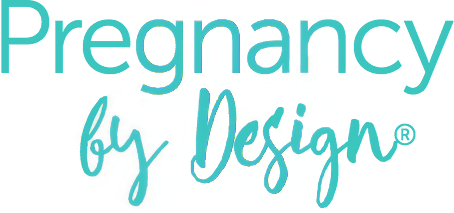Breastfeeding Tips and Help
Congratulations on your baby and your decision to breastfeed your newborn! Although breastfeeding is a natural process, many breastfeeding mothers need help. For some new moms, learning to breastfeed can be frustrating and sometimes even uncomfortable. The good news is that lots of support for breastfeeding moms is available and it will get easier! Seeing a lactation consultant will help with any breastfeeding problems, but you may have to do some research to find a consultant or support group that is right for you. Here are some common questions that new nursing mothers ask and some breastfeeding tips to help you get started and ease initial challenges.
When will My Milk Come in?
Your body is amazing! During the middle of your pregnancy (somewhere between 16-22 weeks), your mammary glands (breasts) will begin to produce colostrum. It’s not easy to tell you are making milk this early on because it doesn’t usually leak out.
Colostrum is the first milk your baby will get after you give birth. It has been referred to as “liquid gold” because it is concentrated, full of nutrients and packed with disease-fighting antibodies.
Colostrum is the perfect first food for a new baby and provides everything they need in those early days.
For most women, your milk will come in around day 3 but the normal range is anywhere between 2-5 days. During this time your milk will increase in quantity and begin to change over from colostrum to mature milk.
Your baby’s small stomach only needs a tiny amount of colostrum so do not worry if your milk has not come in yet. In fact, the average colostrum intake by healthy babies is:
Day 1 = <½– 2 tsp per feeding 1 tsp – ½ oz on day 2 and 1-2 oz per feeding by the end of day 3 (ABM 2009).
Day 2 = 1 tsp – ½ oz per feeding
By End of Day 3= 1-2 oz per feeding
Help! My Nipples Hurt!
In the first weeks of breastfeeding your newborn, sore nipples and pain when latching is common and, most experts say, normal. As your nipples get used to breastfeeding, they won’t hurt anymore.
Breastfeeding Tips:
- Check that baby’s mouth has a good latch. Make sure the baby’s lips are fully out and baby’s mouth is fish-faced while nursing. If one of the lips is sucked in, it can contribute to nipple soreness. Also, you want baby to open his mouth very wide before taking the breast into his mouth–no sucking on the nipple!
- Use lanolin or another nipple cream
- Let your nipples dry between feedings
- Leave a little extra milk on the nipple to help it heal.
When to Seek Breastfeeding Help:
If it hurts for longer than two weeks or it hurts while the baby is nursing or between feedings, see a lactation consultant right away. Usually, sore nipples are caused by an imperfect latch, and a lactation consultant will help you and baby learn better positioning.
I’m Afraid I don’t Make Enough Milk
It’s unusual for mothers to not make enough milk for their baby.
All babies lose some of their birth weight in the first 3-4 days after birth. Babies who are breastfeeding normally regain their birth weight within 10-14 days.
Breastfeeding Tips:
- If you think your baby might not be getting enough milk, monitor his diapers. Baby should have 6+ pees and 2-5 bowel movements per day starting around the third or fourth day.
- See a lactation counselor or your midwife if you are still concerned.
It Takes Forever. Is This Normal?
During the first few days after birth, the baby may want to nurse for a long time–up to an hour. There are many reasons for this, but it could be to encourage the mother’s milk production, comfort herself, or because she just eats very slow.
Frequent and unrestricted nursing sessions in the first few weeks help the mother’s body to heal (the oxytocin closes up the uterus) and her hormones to stabilize. It also helps prevent painful engorgement from backed up milk.
The baby needs to get the colostrum and practice nursing in the early days before the breast gets more full when the milk comes in. Breastfeeding often also lowers baby’s risk of jaundice.
Breastfeeding Tips:
- Relax and remember that this is not the time to get anything done.
- Take at least six weeks to do nothing except care for yourself and your baby.
It Just Hurts. Should I Stop Breastfeeding?
It’s much simpler and cheaper to resolve the issue and then continue breastfeeding. It can be hard, but if you stick with it, there are many parenting and health benefits.
Breastfeeding Tips:
- First, see an expert. Your baby may need a lip or tongue-tie attended to or help latching correctly.
- Call your pregnancy health care provider. You may have thrush (yeast infection on the breast) or an infection or clogged duct.
I’m Leaking Milk!
Milk goddess alert! Some women leak milk, especially if the let down is strong and especially during the early months. Leaking has no bearing on your ability to produce enough milk.
Breastfeeding Tips:
- Wear good breastfeeding pads and change them often. You can also catch the extra milk to freeze for later–which will save you from having to use your breast pump!
- If leaking bothers you, apply gentle flat pressure directing on the nipple, express milk more often, invest in extra duty nursing pads, or clothes that camouflage the wetness.
Can I Use a Pacifier?
You can, but most experts recommend you wait until you know your baby is a good, strong nurser. The way babies suck on a pacifier is different from how they use the breast.
Regular pacifier use can confuse or pacify them to the point where breastfeeding is hard. In the early weeks, it may also decrease your milk supply as it decreases nursing sessions.
Baby is Spitting Up a Lot
Normal healthy babies sometimes spit up or go through periods early on of spitting up after feedings. If the baby is gaining weight appropriately and having 6+ pees and 2-5 poos per day, it’s a sign she’s getting enough milk.
Babies sometimes spit up because of a strong let-down, delicate gag reflex, or immature muscle control. They may also spit up if they had too much milk. Sometimes, allergy or disease can cause spitting up.
Breastfeeding Tips:
- The baby will outgrow spitting up. In the meantime, try keeping your baby upright after feedings and handling her gently.
- If you suspect too much milk is part of the problem, keep the baby on one breast for a little longer. If it’s too much milk all at once during let-down and your baby gulps and coughs, take the baby off and express some of the milk into a bowl or towel so that it’s not so strong for the baby.
My Newborn Keeps Falling Asleep While Eating!
This is very normal. Babies love to nurse and they feel good there. There are also compounds in breastmilk that are chemically similar to prescription tranquilizers. It’s an excellent parenting tool, but when your baby is tiny it can knock him out easily.
If your baby is gaining weight normally and having those 6 or so pees and 2-5 poos, it’s nothing to worry about. Just enjoy holding your sleeping baby.
Breastfeeding Tips:
- Try switching breasts as soon as your baby begins to lose interest in active nursing. You may need to do this often at first (every 30 to 60 seconds) but you should begin to see a difference after a couple days of doing this.
- Try nursing your baby in the “football” hold – it’s a little less “cuddly” position than the cradle hold.
I Can’t Keep Up, I’m Too Tired!
It is really exhausting to have a newborn. Breastfeeding takes a lot of time, and though the benefits certainly outweigh the drawbacks, there is a steep learning curve and adjustment period for some people.
If breastfeeding is hard, get some help.
If life is just hard, get some help.
If you feel anxious or depressed, get some help.
You can start with your healthcare provider. Try a lactation consultant (even if what you need is advice on how to get more sleep!), a therapist for the mood, and family or a postpartum doula to help balance it all.
The transitions are hard. You can do hard things. Get help.
I Have Inverted Nipples.
You can still breastfeed! Typically, after breastfeeding for awhile, it’s not a problem anymore.
Breastfeeding Tips:
- See a lactation consultant.
- Try pumping before feeding to draw out the nipple or try using nipple shields.
Breastfeeding is Weird.
Breastfeeding is what breasts were made for. Unfortunately, our society has run away with that and made them primarily sexual. Many people find breastfeeding strange at first. That’s OK.
The benefits of breastfeeding are worth the work you are doing.
Many have heard how good breastmilk is. But most do not know the depth of how amazing and integral breastmilk and breastfeeding are to the baby’s health and nutrition over their entire lifetime.
The American Academy of Pediatrics states that:
- Breastfeeding protects against respiratory illnesses, ear infections, gastrointestinal diseases, and allergies (including asthma, eczema and atopic dermatitis).
- The rate of SIDS (sudden infant death syndrome) is reduced by over a third in breastfed babies
- Long term benefits too! 15 -30% reduction in adolescent and adult obesity in breastfed vs. non-breastfed infants.
Make Sure to Get the Support You Need
It’s important to know that you need support for your choice to breastfeed and a village of women who are currently breastfeeding. Hang around with some breastfeeding mothers while they feed their babies or join a breastfeeding support group or find a breastfeeding class in your area. If it’s your first time, it may take a few weeks for it to feel normal. After all, you’ve never done it before!
Breastfeeding moms can also get help from different types of health professionals and organizations. Also, keep in mind that under the Affordable Care Act, more moms have access to free breastfeeding support and supplies.
Healthcare Professionals that Provide Breastfeeding Help:
International Board Certified Lactation Consultant (IBCLC)
IBCLCs are certified breastfeeding professionals that have the highest level of knowledge and skill in breastfeeding support. IBCLCs are able to help with a wide range of breastfeeding issues.
Certified Lactation Counselor or Certified Breastfeeding Educator
A certified lactation counselor or breastfeeding educator helps breastfeeding moms with basic challenges and questions.
Doulas and Postpartum Doulas
Doulas are professionally trained to give families physical, emotional and educational support during pregnancy, labor, and birth. Postpartum doulas provide help at home during the first few days or weeks after the baby is born. Doulas that are trained in breastfeeding can help you breastfeed your new baby.
Organizations that Provide Breastfeeding Help:
La Leche League
La Leche League is an international organization that provides support, encouragement, information, and education, and promotes a better understanding of breastfeeding. You can find a local support group on their website at https://www.llli.org.
National Breastfeeding Helpline
The National Breastfeeding Helpline is a free service offered through the Office on Women’s Health. You can call anytime between 9 a.m. and 6 p.m. ET, Monday-Friday, at 1-800-994-9662 to speak with a women’s health information specialist (also trained as breastfeeding peer counselors). You can call as many times as you need to.
Disclaimer: Pregnancy by Design’s information is not a substitute for professional medical advice or treatment. Always ask your healthcare provider about any health concerns you may have.
Cited Research:
ABM [Academy of Breastfeeding Medicine] Clinical Protocol #3: Hospital guidelines for the use of supplementary feedings in the healthy term breastfed neonate, revised 2009. Breastfeed Med. 2009;4(3):175-82. Retrieved from https://abm.memberclicks.net/assets/DOCUMENTS/PROTOCOLS/4-mastitis-protocol-english.pdf
La Leche League International. The Breastfeeding Answer Book, third edition (2003). La Leche League International, Inc.



 2nd Trimester of Pregnancy
2nd Trimester of Pregnancy





My daughter just had her first baby. She is passionate about breastfeeding and wonders if she should get a consultant before any problems arise. I was glad to see some troubleshooting advice. Monitoring the baby’s diapers by making sure they have 6 wet and 2-5 bowel movements per day is good to know. Also, if it hurts longer than two weeks, then a consultant should be visited. This is great advice and indicates that she is right in thinking she should get a consultant on board early on.